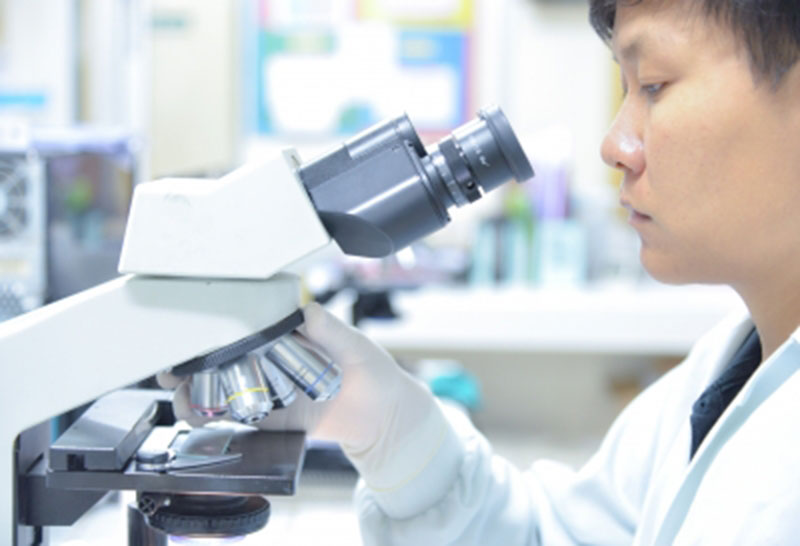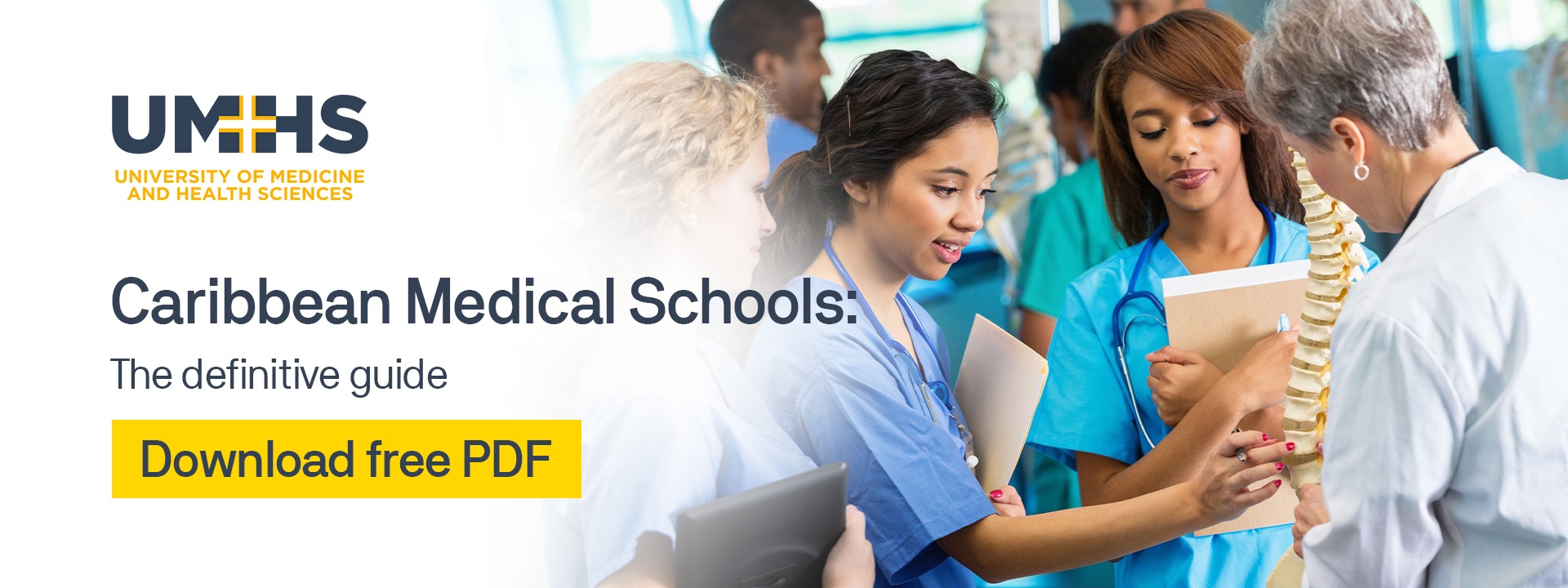Introduction
Not everyone who enters med school to become an M.D. takes the traditional premed track as an undergraduate. Many students at U.S. and top medical schools in the Caribbean come from diverse backgrounds in liberal arts and the social sciences and have not taken prerequisite math and science courses. Some apply to post-baccalaureate premed programs, often called “postbacc” or “post-bac,” many at prestigious universities. They do so to fine-tune their backgrounds in science and math. Post-bacc students take “premed” courses to prepare for medical school and a career as an M.D.
Critics say post-bacc programs are too expensive and difficult to get into. Cheaper alternatives like community colleges can also prepare one for med school. The UMHS Endeavour examines the pros and cons of postbacc programs. We will discuss what a premed postbacc program is. We'll also cover the length of programs, the pros, the biggest myths, advice and more. We base information on various sources, from the AAMC, Prospective Doctor, Studentdoctor.net to U.S. News and World Report. In addition, we include comments from Marie McGillycuddy, Vice President of Admissions at UMHS and Patrick McCormick, Associate Dean of Academic & Student Affairs at UMHS.

WHY CONSIDER A PRE-MED POST-BACC PROGRAM? Gain access to advisors experienced in working with students from non-science fields interested in medical school. Photo: Courtesy of Toeytoey/FreeDigitalPhotos.net
What is a Premed Postbacc Program?
Premed postbacc programs, according to the American Association of Medical Colleges (AAMC), are for graduates needing science-oriented coursework before med school, career changers, and some are “specifically designed to assist those underrepresented in medicine or from economically disadvantaged backgrounds.”
Other types of students who enter postbacc programs include applicants with a low undergraduate GPA in premed courses and students with borderline MCAT scores, according to a 2016 post in U.S. News and World Report.
How Long is a Premed Postbacc Program?
Postbacc programs range from 18 to 24 months. They are completed during what many call “gap” and “bridge” years between undergraduate and medical school. “Post-baccalaureate programs do not confer the master’s or doctoral degrees offered by many formal graduate programs. Instead, they usually provide students with a post-baccalaureate certificate,” a post on the University Language Services website said.
Discover if a Caribbean Medical School is right for you.
Learn about the most popular alternative path to becoming a doctor.
Pros of Postbacc Programs: What Are 7 Benefits?
“Is a Post-Bacc Program Right for Me? Seven Benefits to Consider,” a post on the AAMC website, outlined the seven main benefits to consider. Let’s look at the highlights of each benefit.
Seven benefits to consider from AMMC include the following:
- Extended access to advisors: AAMC notes that pre-health advisors may “better understand your challenges and concerns.” Why? Because they work directly with students preparing for med school.
- Medical school linkage programs: Some post-bacc schools are affiliated with certain medical schools. AAMC stresses that simply attending a school’s post-bacc program is no guarantee of acceptance an affiliated med school. “Participation in an institution’s post-bacc program will give you the advantage of becoming familiar with the medical school faculty, mission, and environment before you apply.”
- Built-in volunteer opportunities: Many post-bacc programs set aside a day for students to volunteer in medical-related settings. This gives one a chance to get a great letter of recommendation from a doctor or other healthcare professional.
- Exclusive networking and programming: Some programs have lecturers in the medical world that are great people with which to connect. It. allows students to explore different types of medical career paths. One engages “with people who may become role models or mentors for you in the future.”
- Flexible structure and scheduling: Students have the option to complete programs in one or two years. This gives you the chance to work part time if extra money is needed.
- Accelerated coursework: Nearly all students in post-bacc programs need to take science and math prerequisites before applying to medical school. Why? Because they didn’t take them as an undergraduate. “These programs condense the necessary classes into a more streamlined schedule that can take less time to complete,” the AAMC post said.
- MCAT preparation: Most post-bacc program include MCAT preparation. MCAT prep helps one can gear up for this crucial exam while also completing prerequisites.
What Are 5 Reasons to Do a Pre-Med Post-Bac?
Studentdoctor.net has an informative post “Five Reasons to Do a Pre-Med Post-Bac” outlining why you may wish to consider doing an additional year or two of studies prior to med school after completing your undergraduate. We will underscore key points of each reason.
- Focus Solely on the Premed Curriculum: Many students were distracted as undergraduates by trips with friends, volunteer work, etc. They did not focus too much on school. In a post-bac program, however, you take only premed courses. “The premed post-bac has the major advantage of a focused curriculum that you complete without the distraction of being in college,” the post said.
- Improve Your GPA & BCPM: As an undergraduate, one learns how to study and the importance of study habits. In a post-bac program, you are laser-focused on excelling in prerequisite courses. This may lead to you getting higher grades than you did as an undergrad. “The grades you earn in your post-bac program will impact your overall GPA," the post said. "Since you will be taking premed classes, your GPA here will largely make up your BCPM (Biology, Chemistry, Physics, and Math grades, used as a separate metric to assess medical school candidates)."
- Ready Yourself for the MCAT: MCAT prep courses taken as an undergrad sometimes space out the material. In a post-bac program, one takes prerequisite courses and studies for the MCAT simultaneously. “The premed post-bac classes will reinforce the MCAT material, and the MCAT studying will help you do better in your classes, and might even give you some successful studying strategies that bring up your in-class test scores,” the article said.
- Get Strong Letters of Recommendation: Post-bac program classes are usually smaller than undergraduate science courses. It is far easier to get to know professors, and this can be an advantage when needing letters of recommendation. “You have the opportunity to stand out and to get to know your instructors well during the academic term,” Studentdoctor.net said. “As a result, you can get more personal and meaningful letters of recommendation from your science faculty.”
- Explore Other Disciplines during Undergrad: Medical school admissions committees often look for “cultural competency” in candidates. Studentdoctor.net says students can spend time doing a semester abroad in Europe or doing volunteer work as an undergraduate, allowing one to have unique experiences before having to be devoted to premed courses. “Surprisingly, by removing the premedical curriculum from your undergrad years, the laser-focused premed post-bac actually helps you become a more well-rounded, culturally competent candidate,” the post said.
What are the Biggest 3 Myths about Postbacc Programs?
Misconceptions abound concerning postbacc programs, and U.S. News and World Report outlined “3 Myths About Postbaccalaureate Medical Programs” in a February 2018 post by Cassie Kosarek.
Ms. Kosarek noted that, while the programs “help students tackle academic weaknesses,” they “don’t guarantee admission to medical school.”
Because admissions standards are so rigid for many American and Caribbean medical schools, many prospective students, even if they have taken traditional “premed” courses, feel that their overall GPA, grades in core classes and a low MCAT score won’t qualify them for med school. A formal postbacc program is sometimes the answer for these students, Ms. Kosarek said in the post.
“These programs often offer a master's degree in a field related to science or medicine, and they accept potential medical students who have completed their undergraduate degrees and basic premedical coursework,” she wrote.
Ms. Kosarek outlined three common myths regarding postbacc program. The UMHS Endeavour includes highlights below.
What is Myth 1 About Post-Bacc Programs?
“Myth 1: Postbaccalaureate programs maintain low admissions standards and competition for a seat is minimal.” The reality is postbacc programs are quite competitive because they “wish to accept students who exhibit the academic prowess necessary to gain admittance to medical school” and are actually quite discerning.
In addition, postbacc programs that claim high med school acceptance rates “have more applicants than they do available slots – and competition for those spots is serious,” Ms. Kosarek said.
What is Myth 2 About Post-Bacc Programs?
“Myth 2: Postbaccalaureate programs automatically guarantee admission to medical school.” Postbacc programs allow students to prove themselves academically. However, as Ms. Kosarek points out, “You should not confuse an opportunity to complete a postbacc with an automatic guarantee that you will become a physician.”
Many of the postbacc programs at large universities also offer interviews with their medical schools, but the acceptance rate into medical school for students who completed a postbacc program at the same university ranges from 55 to 85 percent. So, although postbacc programs might be a “fast track” to med school, nothing is ever certain.
“In short, completing a postbaccalaureate program improves your admissions chances, but it is still up to you to perform to the high academic standards necessary to gain an acceptance,” Ms. Kosarek said.
What is Myth 3 About Post-Bacc Programs?
“Myth 3: Medical schools view applicants from postbaccalaureate programs unfavorably.” Since more and more med school applicants are considered nontraditional students, schools now welcome people with “diverse paths toward medicine.”
Keep in mind that med school admissions committees mostly look at your most recent academic performance. Even if you had a less-than-stellar GPA as an undergraduate, a postbacc program offers you a chance to prove yourself, Ms. Kosarek noted.
“Completing and excelling in a postbaccalaureate program ties into what medical schools want most in an applicant: evidence that you will be a good clinician,” she said.
What do Med School Admissions Departments Think About Premed Postbacc Programs?
Marie McGillycuddy, Vice President of Admissions at UMHS, a Caribbean medical school, outlined the benefits of premed postbacc programs.
“They are incredibly valuable programs for students who did not complete their premedical courses during their undergraduate studies,” Ms. McGillycuddy said. “They are primarily designed to focus only on the courses that are needed to enter medical school. Some schools will also integrate volunteer and research opportunities into their post-bac programs. This will strengthen a student’s application to medical school. Also, students typically score higher when in a post baccalaureate program then taking the premedical prerequisites separately. If you are a student who did not complete your premed courses in your undergrad or if you did not score well, I highly recommend completing your courses through a post-bac program. We have articulation agreements with a few schools and their post-bac programs which will allow their students a direct path into UMHS.”
Cons of Postbacc Programs: What Are the Negative Aspects?
Postbacc programs are not for everyone. As University Language Services said in its post, “a post-baccalaureate degree on its own isn’t a huge asset in terms of serving as an impressive credential." They add "if it’s not going to help you in your future, a post-baccalaureate degree is by no means a must.”
Are Postbacc Programs Expensive & Hard to Get Into?
Postbacc programs can be expensive, depending on which school you attend, and some have strict entrance requirements. Some students find local community colleges to be much cheaper and easier to get into. Many community colleges offer online courses, including labs, so they are definitely an alternative to postbacc programs. However, students with undergraduate liberal arts degrees and little academic experience with science may have difficulty with organic chemistry or physics courses taken online, with no one-on-one instruction or interaction with a live instructor.
Do Postbacc Programs Really Make a Difference?
Patrick McCormick, Associate Dean of Academic & Student Affairs at UMHS, said students should consider the positive and negative aspects of postbacc programs.
“The individual strength of any post-bacc program and the services they offer can certainly be valuable, and although they don’t guarantee admission to medical school, they provide tangible benefits, making the applicant more appetizing to admissions committees,” he said.
In the long run, whether or not you completed prerequisites in a premed postbacc program or at a community college may not make much difference.
“When it comes to residency, the focus is more on ‘What have you done for me lately?’ in terms of a student’s record and achievements during medical school,” Mr. McCormick said. “Regardless of a student’s pre-medical school foundation, nothing has greater influence on employment in residency than performance on licensing examinations and the academic weight and quality of accomplishments during medical school. At the end of the day, most residency programs don’t weigh how students earned their medical credentials to get into medical schools at all in their employment considerations. They weigh the overall quality of the medical school credential, performance, and professional pedigree brought to the interview.”
Takeaway
Postbacc programs have many benefits. While many help students strengthen academic weaknesses, they are not always a “guaranteed admission” to med school. If one is simply missing a few premed courses, it might be more economical and time saving to take courses online at any U.S. accredited community college or the online Athabasca University in Canada. However, students with liberal arts backgrounds who have taken very few premed courses might benefit from a postbacc program. The access to advisors experienced in working with students from non-science fields interested in medical school is often outstanding. In addition, the volunteer and networking opportunities in a postbacc program might be better than at a community college. The accelerated coursework and MCAT preparation available in postbacc programs also make them worth considering.
(Top photo) There are many reasons to do a postbacc program if you need premed courses like General Biology or Organic Chemistry with labs. Photo: Deposit Photos
Please check out some of our other popular blog posts:
| What is a pathologist and their specialties | Hospital medicine | Brain fog - Clouding of consciousness |
| non traditional medical school applicant | D.O. vs M.D. | Optometry vs Ophthalmology |
About UMHS:
Built in the tradition of the best US universities, the University of Medicine and Health Sciences focuses on individual student attention, maintaining small class sizes and recruiting high-quality faculty. We call this unique approach, “personalized medical education,” and it’s what has led to our unprecedented 96% student retention rate, and outstanding residency placements across the US and Canada. UMHS is challenging everything you thought you knew about Caribbean medical schools.
*This post was updated from the original version to reflect newer information

Scott is Director of Digital Content & Alumni Communications Liaison at UMHS and editor of the UMHS Endeavour blog. When he's not writing about UMHS students, faculty, events, public health, alumni and UMHS research, he writes and edits Broadway theater reviews for a website he publishes in New York City, StageZine.com.


















